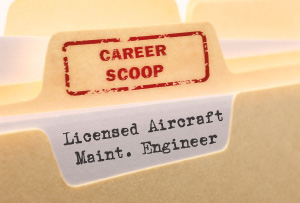In a nutshell, what do you do?
I provide maintenance for a fleet of helicopters, servicing and fixing things.
Why did you decide to become a Licensed Aircraft Maintenance Engineer?
I was really interested in joining the forces, and it was a role that excited me. When I saw there was the opportunity to do this work in the civilian workplace, I jumped at it, as there’s much more opportunity in this space (if less money).
What path did you take into it?
A pre-trade course through Queensland Institute for Aviation Engineering – then an apprenticeship working with helicopters.
What, in your opinion, is the best bit of being a Licensed Aircraft Maintenance Engineer?
The challenge of knowing that everything has to be perfect; no room for error means awesome motivation. There’s also lots of variety – every day is different – the social interaction’s good and getting to travel to service and fix helicopters around Australia is a bonus.
Every job has its downsides. What do you think are the worst bits?
It can be very unpredictable in terms of hours – you get very little notice of needing to travel, if something goes wrong – and some of the job has little to do with aircraft maintenance, e.g. painting walls, fuel driving etc.
Is it what you expected when you first started out – and what’s different?
It is – though a point of difference is that I thought there would be more youth in the field (most people in the field are in their late 40’s and up).
What do the public least understand – or mistake – about what you do?
It’s not just a mind-numbing trade – it’s a constant development career. You’re always studying, always improving, always growing.
What kind of people tend to do well?
You need to have good situational awareness and keep studying – and to be someone who’s willing to keep learning, with self discipline. You need a strong work ethic and you’ll do well if you’re honest and easy-going.
Finally, any advice you’d offer to people looking to get into this line of work?
Organise work experience, to get a feel for what’s involved – at least 2 weeks (you can organise this through your school, or approach someone directly).
It’s definitely a career that works hard for you, if you work hard for it. It’s more about the team, than an individual course or trade. It’s really awesome to be part of an ever changing game.




